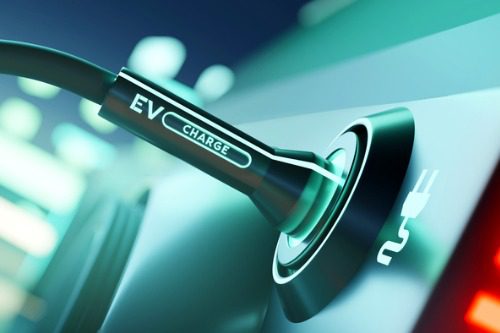Useful facts about electric vehicles

Authored by NIG
In the UK, currently more than one in six cars on the road are electric or hybrid. Most plug-in cars on the road are registered to businesses as 58.8% of all electric vehicles (EVs) are company registered, as stated by the Society of Motor Manufacturers and Traders. If your client is considering making the move to electric, you can help them by sharing these useful facts.
1. The UK has a large, growing number of charging points
According to the SMMT, the UK’s ratio of public chargers to electric cars of one charger per 32 battery electric vehicles is the highest in the West, with only China’s 1:11, South Korea’s 1:12 and Japan’s 1:17 ratios ahead.
The UK government has also invested £1.6 billion in its ‘Electric Vehicle Infrastructure’ strategy which will see around 300,000 public electric charging points installed across the UK by 2030.
From June 2022, all new commercial buildings in England will also be required to have electric car chargers installed upon construction, as well as new homes, supermarkets and buildings undergoing major renovations. The number of charging points will only increase in the UK, with the government aiming to have 145,000 charging points installed across the country each year.
2. EV batteries do not require regular replacement
EV batteries last a long time. Most manufacturers have a five to eight-year warranty on their battery. One can last 10-20 years before it needs replacing, meaning less frequent costs for your clients.
3. EVs can be cost effective
Electricity costs much less than petrol or diesel reducing operational costs on engine upkeep. And, with less parts to maintain, there are also fewer maintenance issues than an internal combustion engine (ICE), with some electric car owners reporting spending a third of the cost to maintain their EVs compared to ICE vehicles.
Electric car and van fleets are also exempt from London’s Ultra Low Emission and Congestion Charge Zones, along with Bath’s Clean Air Zone. EVs can also benefit from free parking in some areas.
4. EVs utilise energy from braking
The energy created when braking in a traditional ICE vehicle dissipates and is lost. Electric vehicles, however, benefit from regenerative braking. Kinetic energy developed by the friction can convert back into electricity to recharge the battery when a driver lifts their foot from the accelerator, or when they brake.
Regenerative braking can extend the driving range meaning an EV can travel further without needing to stop and charge the battery.
Our EV insurance capabilities
It’s crucial that clients looking to introducing EVs to their fleet are well informed about electric vehicles and more. Get in contact with your local underwriter to discuss our fleet and charging point insurance capabilities.
Read another article from our EV series, What you need to know about the UK’s charging infrastructure.
If you would like to speak to someone at NIG about this article, CLICK HERE, leave a message and youtalk-insurance will pass your enquiry on.





